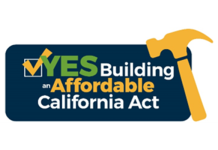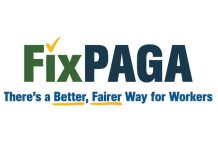 Setting liability limits for employers facing lawsuits over COVID-19 exposure, postponing the 2021 minimum wage hike, and expediting retraining programs for unemployed workers are some ways lawmakers and the Governor can help ensure California’s economy recovers from the pandemic crisis, the California Chamber of Commerce told state leaders in a letter this week.
Setting liability limits for employers facing lawsuits over COVID-19 exposure, postponing the 2021 minimum wage hike, and expediting retraining programs for unemployed workers are some ways lawmakers and the Governor can help ensure California’s economy recovers from the pandemic crisis, the California Chamber of Commerce told state leaders in a letter this week.
The May 26 letter, addressed to California Governor Gavin Newsom, Assembly and Senate leaders, and members of the Legislature, pointed out that the private economy is the engine that creates jobs and tax revenue to support state spending, including critical government services threatened with cuts.
In order to stimulate a recovery, the CalChamber stated, the Legislature needs to refrain from imposing any new burdens on employers and proactively eliminate or suspend costs and burdens so that employers can reopen and rehire the millions of workers who have lost their jobs.
On behalf of its 14,000 members representing every size, type and location of California business, the CalChamber urged the Newsom administration, Assembly, and Senate to collaborate to expeditiously break down the barriers to economic recovery by focusing on the following areas:
- Liability relief. To encourage businesses to reopen in a safe and responsible manner, California must provide assurances of immunity to all private entities providing critical services, goods, and facilities during the Covid-19 state of emergency, including private donations of critical services, goods, and facilities. The Administration has issued thoughtful, industry-specific guidance detailing safety procedures for businesses to follow. The Legislature and Administration should ensure that businesses that follow this guidance will not be shut down by litigation for claims of negligence if a consumer alleges he or she contracted the virus while on premises. Liability limits should apply to any regulatory or administrative orders from state or local agencies. This limitation would only apply to negligence claims and would still preserve the ability for harmed individuals to seek remedies for gross negligence and willful misconduct.
- Businesses contracting with businesses. Lawmakers should immediately settle the ongoing uncertainty created by AB 5 over independent contractor status for a business that contracts with another bona fide business. This clarity is critical for numerous industries and professions: to ensure that medical professionals can still provide necessary healthcare to all communities throughout California; that businesses can support available services such as IT, creative design, payroll, and delivery; that nursing facilities can contract for necessary services for their residents; and that individuals who are struggling, have lost employment, and want to become a sole proprietor, have an opportunity to build a business.
- Eliminate disincentives for telecommuting. Work-from-home has saved thousands of businesses and propped up large segments of the economy. Pursuant to state guidance, even when the economy reopens, employers will need to limit the number of employees in the workplace. Telecommuting provides that alternative, but employers will only fully embrace that option if it doesn’t lead to liability and frivolous litigation. The Legislature and Administration should change workplace rules to recognize at-home work locations (meal and rest period requirements, Cal/OSHA requirements, and posting/notice requirements), or employers may in effect be forced to limit this opportunity to only salaried employees, who are not covered by several of these requirements, leaving hourly workers with no work-from-home option.
- Exempt emergency pandemic compliance from the Labor Code Private Attorney General Act. During the pandemic emergency government ordered within days – and sometimes even on less than a day’s notice–businesses to completely alter their work environments. Employers reacted quickly with new workplace arrangements, such as telecommuting and new distancing and attendance practices, while trying to accommodate a chaotic market and new government costs and mandates. The Legislature and Governor should protect employers from facing vexatious litigation during these tumultuous times by temporarily suspending PAGA for at least a year. The Labor Commissioner would retain her sweeping enforcement authority to remedy any labor violation and provide an employee with the full amount of damages owed. However, unlike PAGA, the Labor Commissioner has the discretion to determine whether a violation is willful and whether penalties are appropriate. California does not need to further enrich trial attorneys with abusive PAGA claims at the expense of the state’s struggling economy.
- Postpone minimum wage hike for 2021. Sponsors of the 2016 legislation to raise the minimum wage touted an improvement upon the then-proposed ballot measure by providing the Governor the option to postpone by a year any of the annual step increases in the event of a major economic recession or state budget crisis. Indeed, including this temporary offramp likely made the difference in the bill’s passage. The criteria in the law for postponement fit the current conditions like a glove. The mechanism for the Governor to decide on a postponement does not kick in until this summer, but signaling his sympathy with this approach may in turn encourage more hiring sooner for lower wage jobs. If postponement is not indicated under this dire economic and budget circumstance, then just when would this offramp apply? Finally, the Governor can propose to increase minimum wages for state- funded workers, but that does not constrain him from pausing the increase in the private economy.
- Postpone nonessential compliance and rulemaking activities. Dozens of state agencies are committing regulatory business-as-usual. Just last week, the California Air Resources Board requested comments to a major regulatory proposal about mandating electric commercial trucks. Businesses are consumed with getting back on their feet and complying with all the existing rules. The Governor should order state agencies to hit the pause button on all nonessential regulatory functions not urgently needed to protect human health and extend the time to implement rules that have not yet taken effect. Top of the list: The Attorney General should suspend enforcement of the still-unfinished regulations for the California Consumer Privacy Act.
- Accelerate construction and permitting of new housing. The homebuilding and related construction industries are positioned to be an economic engine for job creation and immediate economic activity. They produce skilled, decent paying jobs while maintaining a safe working environment. But achieving a rapid reboot of this industry will require focused attention on the impacts of overregulation. In the short run, the most effective policy will be for the Governor to stop further burdens on this sector: (1) Delay the effective date of the VMT regulation, (2) Delay implementation of Waters of the State (WOTS) Procedures, and (3) Delay the adoption of the Construction General Permit (stormwater) for at least 24 months. None of these regulations affects the immediate health and safety of Californians, each will require massive state or local staff costs during a time of enormous budget pressure, and each creates enormous burdens on homebuilders that will delay the economic benefits from production of new homes. The Legislature should also take action to extend for 24 months all local entitlements, approvals and permits.
- Expedite retraining program for unemployed workers. The shock to the economy and labor market will reverberate for years, as businesses contend with customer and regulatory reaction to the pandemic. The Administration and Legislature can help cushion the shock to workers left idle by the shutdown, and by a slow recovery, by providing retraining for jobs in industries that remain vibrant or that recover more quickly.
Fierce economic shocks have barraged employers large and small with unprecedented speed, destabilizing thousands of workplaces and erasing millions of jobs. Some industries, such as hospitality and other public- facing businesses, have suffered more than others. Low wage and often low-skilled workers that work in these industries have also been impacted, even more so, and their jobs will not reappear until their employers are again healthy. This will require affirmative efforts by elected state leaders to reduce employer costs to offset their loss of economic production, the CalChamber stated in the letter.
“Despite a reduction in the overall amount of legislation, the focus and scope of many bills is still alarming given the economic crisis. We are long past the time for business as usual; the Legislature can no longer enjoy the luxury of legislating as if still in an expanding economy with labor shortages,” the CalChamber said. “We most certainly cannot afford to be considering and passing job killing bills, such as proposals to increase taxes on business, new threats of litigation, and expanded mandatory leaves, to name just a few. The Legislature and Administration must identify ways to relieve burdens on business.”
Staff Contact: Jennifer Barrera


